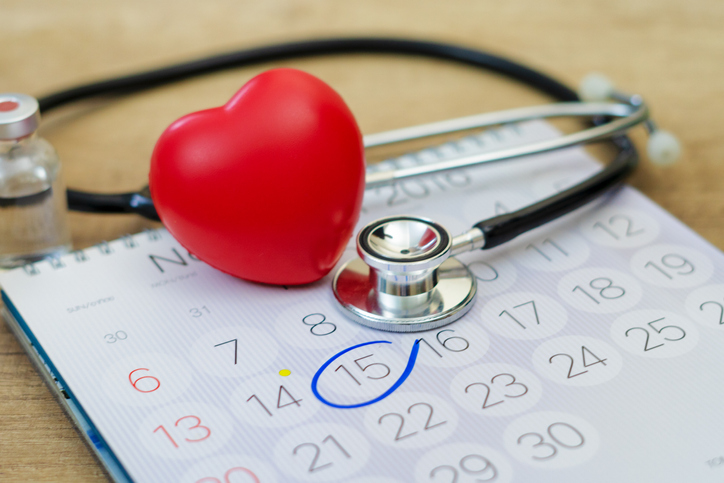Having Heart Surgery? Consider Getting a Pre-Op Nutrition Test

By Joy Stephenson-Laws, JD, Founder
The critical role that nutrition plays in staying healthy, including recovering from surgery, is well known. (In fact, nutrition is a very popular pH Labs blog topic). Vitamin C, for example, may be an important nutrient to speed up wound healing. But while medical specialties such as oncology, gastroenterology and pediatrics routinely include identifying and remedying nutritional deficiencies as part of their treatment plans, this has not always necessarily been the case with cardiac surgery.
From anesthesiology to high-tech medical equipment and from transfusions to sophisticated imaging, there are many factors that a cardiac surgery team needs to consider and manage to ensure the best possible patient outcome. Nutrition, unfortunately, isn’t always one of them. Given the almost mind-numbing level of detail involved, it is not surprising that some details – such as ensuring all life-support equipment is working – are given higher priority while others – such as a patient’s nutritional status, may not.
Research suggests, however, that patient nutritional status before, during and after cardiac surgery can play an important role in determining surgical outcome and how quickly patients recover from what usually are grueling and physically demanding procedures. So if you have cardiac surgery coming up, you can be your own best advocate by talking with a competent health professional about getting a nutrient test before surgery. It is also a good idea to include a pre and post-surgical nutrition strategy in your treatment plan to make sure you’re giving your body all it needs to recover as quickly and as healthily as possible.

A recent study demonstrated just how important nutritional status is for cardiac patients. In the study, researchers wanted to see how many patients undergoing cardiac surgery had some degree of nutritional deficiency and how any such deficiency impacted their recovery. There are a variety of reasons why a cardiac patient may develop a nutritional imbalance or deficiency. And most of the time, you can’t tell if someone is malnourished just by looking at them. So, the researchers developed their own metrics for measuring nutrition levels and used them to determine the nutrition status of more than 1,000 patients having cardiac surgery. They then followed these patients for eight years to see how they were doing. As they expected, the greater a patient’s nutritional deficiency, the higher the probability of a less-than-ideal surgical outcome.
According to the National Institutes of Health (NIH), patients who were malnourished at the time of cardiac surgery can experience a variety of negative postoperative outcomes. These include such things as worse functional recovery, higher rates of infection, longer hospital stays, increased risk of pneumonia, a lower discharge-to-home rate (meaning patients needed additional care, such as in a skilled nursing facility, before going home) and longer stays in the intensive care unit.
More Reasons to be Nutritionally Sound for Your Heart
Another study found that in addition to being a good indicator of surgical outcome, nutritional status has the potential for predicting how well any given patient will do if they suffer a heart attack or have angina (a type of chest pain caused by reduced blood flow to the heart). In this case, researchers found that out of some 5,000 patients with acute coronary syndrome (which includes heart attacks), almost 72 percent of them were considered malnourished by at least one nutrition screening test. They also found that a worsening nutritional deficiency was associated with higher mortality and major adverse cardiovascular events, such as stroke or heart attack.
In this particular study, patients with nutritional deficiencies tended to be older women. Researchers also found that they were more likely to be either normal weight or underweight. A good number of them, however, were overweight or even obese. This reinforces the idea that it is almost impossible to tell if a patient has a nutritional imbalance or deficiency just by looking at him or her.
Reinforcing the relationship between nutritional deficiencies with poorer cardiac outcomes was another study that showed that patients with heart failure also frequently have malnutrition, which was associated with increased mortality. This research covered over 500,000 patients with suspected heart failure to see if they also had indications of malnourishment. Of those patients confirmed with heart failure, more than half were mildly malnourished. One-year mortality was between up to 36 percent for patients categorized as either moderately or severely malnourished compared to only nine percent for those with mild malnutrition or normal nutrient levels.
How to be Proactive
The time to make sure you have identified and addressed any nutritional imbalances or deficiencies is before you go in for cardiac surgery rather just assuming that it will be taken care of when you arrive at the hospital or are in recovery after surgery. Doing so will help you and your doctor better manage any risk factors your nutritional condition may create. This role of nutrition in cardiac surgery recovery is so important that the International Multidisciplinary Expert Group on Nutrition in Cardiac Surgery has developed optimal windows for nutritional therapy in cardiac surgery patients. They are:
- Preoperative: at least 2–7 days before surgery
- Early preoperative: ≤24 hours before surgery
- Early postoperative: ≤24 hours after ICU admission
- Postoperative: >24 hours after ICU admission
It’s also important to make sure you are giving your body the nutrients it needs to help protect your immune system and promote a speedy recovery from surgery. While you should, of course, consult with your cardiologist before taking any supplements, you may want to ask about:
- Selenium, a powerful antioxidant that boosts your immune system and may play a role in heart health.
- Vitamin D, the “sunshine vitamin” which plays a role in keeping your immune system healthy as well as helping to protect against heart disease and supporting healthy teeth and bones.
- Vitamin C, which may help manage blood pressure, lower risk of heart disease, boost immunity and prevent iron deficiency.
- Thiamine, also known as vitamin B1, is essential for helping the body use the food you eat as energy and plays a key role in nerve, muscle and heart function.
You should consider eating a “heart-healthy diet” that is rich in fruits, vegetables, whole grains, nuts and beans, and skinless poultry and fish. You should also, of course, avoid saturated and trans fats as well as red meat and sugar.
Once you are home after your surgery, follow a diet, again under your doctor’s guidance, that will help promote healing and getting you back on your feet. This includes getting enough protein from sources such as low-fat or fat-free dairy products, skinless chicken, fish and beans; vitamin C from citrus and green vegetables; vitamin A from dark green leafy vegetables, carrots, cantaloupe and sweet potatoes; and zinc from fortified dairy products, lean meat and pumpkin seeds.
Enjoy your healthy life!
Disclaimer: This article is not intended to provide medical advice. Please consult with your doctor or another competent healthcare practitioner to get specific medical advice for your situation.
The pH professional health care team includes recognized experts from a variety of health care and related disciplines, including physicians, attorneys, nutritionists, nurses and certified fitness instructors. This team also includes the members of the pH Medical Advisory Board, which constantly monitors all pH programs, products and services. To learn more about the pH Medical Advisory Board, click here.







